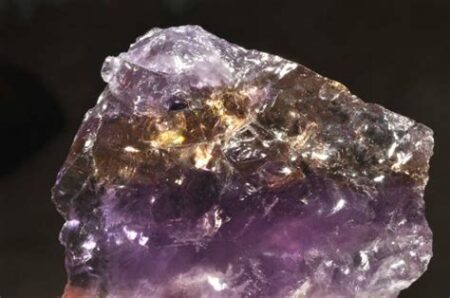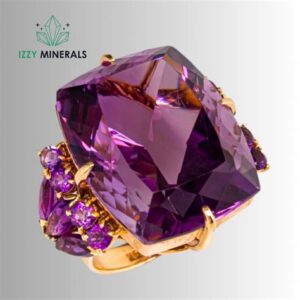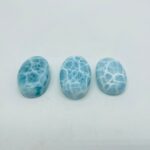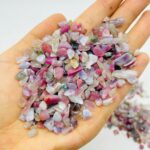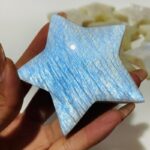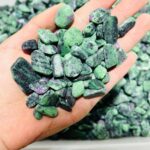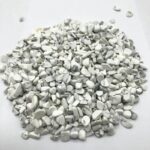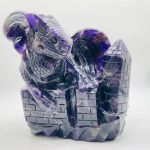Introduction
Stone jasper, a captivating gemstone revered throughout history, has captured the hearts of collectors and artisans alike. Its vibrant hues, intricate patterns, and profound metaphysical properties have made it a sought-after material for jewelry, decorative art, and spiritual practices. This article delves into the captivating world of stone jasper, providing a comprehensive exploration of its history, benefits, and myriad applications.

History of Stone Jasper
Jasper, a member of the quartz family, is characterized by its opaque appearance and varied colors. Its name is derived from the Greek word “iaspis,” meaning “spotted stone.” Archaeological evidence suggests that jasper has been prized by humans for thousands of years, with evidence of its use dating back to the Neolithic period.
Ancient Egyptians believed that jasper possessed protective properties and often used it in funerary rituals and amulets. In ancient Greece, jasper was associated with the goddess Aphrodite, the embodiment of love and beauty. Roman soldiers carried jasper signet rings, believing it would bring them victory in battle.
Throughout the Middle Ages and Renaissance, jasper remained a popular gemstone for both religious and decorative purposes. It was used to adorn churches, create intricate mosaics, and craft exquisite jewelry.
Benefits of Stone Jasper
Jasper is believed to possess a wide range of therapeutic and metaphysical benefits. These include:
- Emotional Stability: Jasper is said to promote emotional balance and stability, helping to dissipate negative emotions and foster inner peace.
- Energy Boost: Jasper is believed to stimulate the base chakra, providing an energy boost and enhancing vitality.
- Physical Healing: Some believe that jasper can aid in physical healing, particularly for digestive and circulatory ailments.
- Spiritual Connection: Jasper is said to facilitate spiritual connection, helping to enhance intuition and provide clarity.
Types of Stone Jasper
Jasper occurs in a wide variety of colors and patterns, each with its unique properties:
- Red Jasper: A vibrant red gemstone associated with strength, vitality, and grounding.
- Green Jasper: A calming and soothing stone believed to promote emotional healing and tranquility.
- Yellow Jasper: A cheerful and uplifting gemstone associated with optimism, abundance, and creativity.
- Brown Jasper: A grounding and protective stone believed to provide stability and dispel negativity.
- Black Jasper: A powerful and protective gemstone associated with strength, resilience, and spiritual grounding.
Uses of Stone Jasper
Stone jasper finds application in a wide range of fields:
- Jewelry: Jasper is commonly used in jewelry making, creating dazzling earrings, necklaces, pendants, and rings.
- Decorative Art: Jasper is used in decorative art, including vases, sculptures, mosaics, and inlay work.
- Massage Therapy: Jasper is sometimes used in massage therapy, believed to promote relaxation and relieve muscle tension.
- Spiritual Healing: Jasper is used in spiritual healing practices, including meditation, crystal healing, and energy work.
- Feng Shui: Jasper is used in Feng Shui to enhance the energy flow in a space, creating balance and harmony.
Applications of Stone Jasper
The versatility of stone jasper extends beyond traditional uses, inspiring innovative applications in various sectors:
- Fashion Design: Jasper is being incorporated into clothing and accessories as a unique and eye-catching element.
- Architecture: Jasper is used in architectural design to create stunning facades, flooring, and interior accents.
- Industrial Design: Jasper’s durability and aesthetic appeal make it suitable for industrial design, including countertops, furniture, and appliances.
- Health and Wellness: Jasper is being explored in the health and wellness industry for its potential therapeutic properties in stress reduction and physical healing.
- Cosmetics: Jasper powder is being used in cosmetics as a natural ingredient to enhance skin radiance and vitality.
Tables
| Type of Jasper | Color | Properties |
|---|---|---|
| Red Jasper | Vibrant red | Strength, vitality, grounding |
| Green Jasper | Calming green | Emotional healing, tranquility |
| Yellow Jasper | Cheerful yellow | Optimism, abundance, creativity |
| Brown Jasper | Grounding brown | Stability, protection |
| Black Jasper | Powerful black | Strength, resilience, spiritual grounding |
| Application of Jasper | Sector | Purpose |
|---|---|---|
| Jewelry | Fashion | Embellishment, beauty |
| Decorative Art | Art | Aesthetics, design |
| Massage Therapy | Health | Relaxation, stress relief |
| Spiritual Healing | Spirituality | Meditation, energy work |
| Feng Shui | Interior Design | Harmony, balance |
Customer Validation
To deeply understand customers’ wants and needs, it is essential to engage them through thoughtful questions:
- What emotions or experiences do you associate with stone jasper?
- How would you like to incorporate stone jasper into your life?
- Are there any specific benefits or properties of stone jasper that you find particularly appealing?
Pros and Cons of Stone Jasper
Pros:
- Durable and long-lasting
- Versatile and suitable for various applications
- Believed to possess therapeutic and metaphysical benefits
- Relatively affordable compared to other gemstones
- Readily available in a wide range of colors and patterns
Cons:
- Can be opaque and lack transparency
- Some varieties may be prone to fading or discoloration over time
- Some people may not resonate with the energy of stone jasper
- Ethical concerns regarding sourcing and sustainability
Conclusion
Stone jasper, a captivating gemstone with a rich history and multifaceted properties, continues to captivate and inspire. Its vibrant colors, intricate patterns, and profound metaphysical benefits make it a versatile material suitable for a wide range of applications, from jewelry and decorative art to spiritual healing and architectural design. As we delve deeper into the potential of stone jasper, we unlock new avenues for creativity, well-being, and aesthetic expression.


